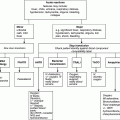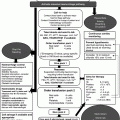Chapter 19 Derek R. Norfolk1 and Fran Hartley2 1 NHS Blood and Transplant, Leeds Teaching Hospitals NHS Trust, Leeds, UK 2 Hospital Transfusion Team, Leeds Teaching Hospitals NHS Trust, Leeds, UK More than half of all patients admitted to critical care are anaemic (haemoglobin (Hb) <130 g/L), and up to 30% of these have an initial Hb concentration less than 90 g/L [1]. After 1 week, the Hb of 80% of patients is below 90 g/L. Depending on case mix, the typical patient without major haemorrhage receives 2–4 U of red blood cells during their stay in the intensive care unit. Consequently, management of the critically ill patient who refuses potentially life-saving blood component therapy presents significant ethical and clinical challenges to the healthcare team. Patients refuse blood transfusion for many reasons, ranging from religious principles to anxiety about potential risks and reactions. The patient, or their family members, may have falsely raised perceptions of the risks of transfusion, such as HIV, hepatitis or variant CJD, based on media reporting or anecdotal experience. In this instance, sympathetic discussion with a well-informed clinician (doctor, nurse or transfusion practitioner) is often successful in allaying concerns (risks of transfusion transmitted infection and their frequency are detailed in Chapter 13). In the UK, the national blood transfusion services provide a range of useful information resources for patients and their families [2], and many hospitals have written policies to support staff in this process. Ultimately, the autonomy of competent patients must be respected however much the clinician may disagree with their decision. Jehovah’s Witnesses, the most frequent group refusing transfusion, base their decision on strict interpretation of the biblical texts: ‘the life of all flesh is the blood thereof: whoever eat it shall be cut off’ (Lev. 17:10–16) and ‘abstain from the meats offered to idols and from blood’ (Acts 15:28–29) (1–3). Most Jehovah’s Witnesses refuse the transfusion of whole blood and its primary components (red cells, platelets, white cells and whole plasma), including pre-operative autologous donation, but there are areas of individual choice. Derivatives of primary blood components such as cryoprecipitate, coagulation factor concentrates, albumin and intravenous immunoglobulin are acceptable to most Jehovah’s Witnesses. There is usually no objection to extracorporeal techniques, such as intra-operative cell salvage (ICS), apheresis, haemodialysis, cardiac bypass or haemodilution, providing equipment is primed with non-blood fluids. Witnesses, like all patients, seek the most effective treatments within the restrictions of their religious prohibitions and have no objection to the use of recombinant haemopoietic stimulating agents such as erythropoietin or G-CSF, procoagulants such as recombinant activated factor VII (rFVIIa, NovoSeven™) or other pharmacological supportive therapies such as intravenous iron. Many Jehovah’s Witnesses carry a signed and witnessed Advance Decision Document (or living will) indicating which transfusion modalities they will, or will not, accept, but it is essential, wherever possible, to have a free and frank discussion about the risks and benefits of their chosen course of action. Ideally, this should be with the patient alone (if competent) to avoid any possibility of coercion. Where time allows, both the patient and staff may find it helpful to involve the local Hospital Liaison Committee for Jehovah’s Witnesses (contact details may be in the hospital’s policy document but there is a central UK Coordinating Office – tel 02089062211 (24 h); his@uk.jw.org). Consent is the agreement by a competent patient for a health professional to provide care. Helpful guidance has been provided by bodies such as the UK General Medical Council and, in relation to blood transfusion, the Advisory Committee on the Safety of Blood, Tissues and Organs (SaBTO) [3]. Following extensive consultation with professionals and patients, SaBTO endorsed the GMC standards for consent, emphasizing the importance of providing standardized patient information (including alternatives to transfusion), recording the consent process in the clinical record and providing retrospective information about transfusion to patients who were unable to consent at the time urgent transfusion was needed. Valid consent implies that the patient has received sufficient information to make an informed decision, including the decision to decline treatment, and is not acting under duress. Patients vary in the extent of information they wish to receive, and clinical judgement is important, but the presumption should be that the patient wishes to be well informed. The discussions and consent, or otherwise, should be clearly documented in the patient record. A detailed discussion of the legal basis of consent and mental capacity is outside the scope of this chapter, and it should be noted that the legal position differs slightly in the UK Devolved Authorities. In England and Wales, the Mental Capacity Act (2005) states ‘that an adult (aged 16 or over) has full legal capacity to make decisions for themselves (the right to autonomy) unless it can be shown that they lack capacity to make a decision for themselves at the time the decision needs to be made’. Importantly, ‘a person is not to be treated as unable to make a decision merely because he makes an unwise decision’. No one can give consent on behalf of an individual with mental capacity. The accompanying Code of Practice [4] details the decision-specific tests needed to assess mental capacity and the individuals and bodies that can become the incapacitated patient’s best interests decision-maker. If a patient with mental capacity declines transfusion after appropriate discussion and advice, this decision must be respected. If a patient has a valid signed and witnessed Advance Decision Document, a copy should be lodged in the patient record, clinical staff made aware of this and the specific limitations on treatment made clear to all members of the team. In the critical care setting, patients often present with temporary incapacity due to the severity of their illness, alteration of conscious state or the effects of essential treatment (e.g. sedation for mechanical ventilation). In this situation, the clinician must act in the best interests of the patient and give life-saving treatment, including urgent blood transfusion, unless there is unequivocal evidence of refusal such as a valid Advance Decision Document. If family members or friends state that the patient previously expressed a wish to avoid transfusion, they should be invited to provide documentary evidence, but, in the meantime, necessary resuscitation measures should not be withheld. Where doubt exists, it is better to act to save life, but it is essential to record (dated and signed) the discussions and clinical indications for treatment in the medical notes, preferably witnessed by a colleague. If the patient later regains capacity and refuses further transfusion or an Advance Decision Document is produced, then the wishes of the patient (or their legal best interests representative) must be followed. In the case of children under 16 whose parents or legal guardians refuse transfusions (or other interventions) that, in the opinion of the treating clinician, are life-saving or essential for the well-being of the child, a Specific Issue Order
Management of Patients Who Refuse Blood Transfusion
Who refuses transfusion and why?
Consent for blood transfusion
![]()
Stay updated, free articles. Join our Telegram channel

Full access? Get Clinical Tree






